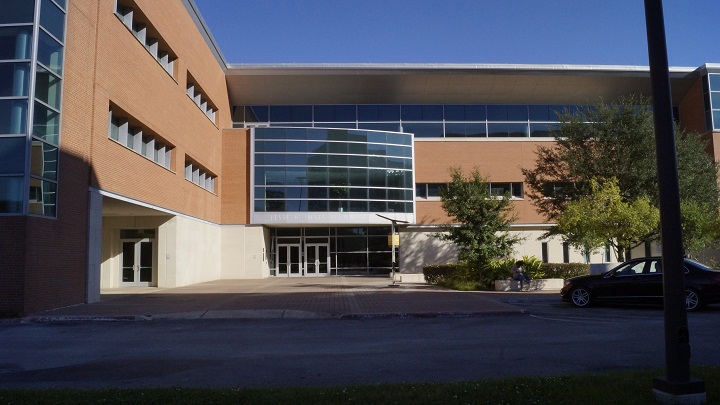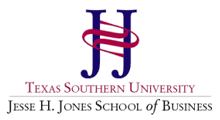
Interactive Classroom
Generation Z – What To Expect, What They Expect
Applicable Theme
Event
Location
RM 238, JHJ School of Business, Houston
Start Date
28-10-2016 1:30 PM
End Date
28-10-2017 2:45 PM
Description of Abstract
What is Generation Z, And What Does It Want?; Gen Z will change your world again; Move over millennials, here comes Generation Z; Reaching Gen Z: New realities for recruitment, retention by 2020 – these are just some of the text titles and headlines servings as harbingers for what lay ahead for colleges and universities. It seems no matter where you browse using the search term ‘higher education’, you will inevitably encounter an article or study warning you to be prepared for this next generation of students. Commonly referred to Generation Z, they have also been called the iGeneration, Centennials, Homeland Generation, Boomlets, The Sharing Generation and The Founder’s Generation (this choice based on a survey of a thousand thirteen to fourteen year olds, conducted by MTV) (Madov, 2015)). And just as undecided as their generational moniker are the presumptive attributes of this population. They have been described as:
- Passionate about the importance and value of higher education; over 80% plan to attend college directly after high school
- Do-it-yourselfers
- Think spatially, in 4D; know how to zoom, pinch and swipe
- Communicate symbolically and with greater speed; replacing text with symbols and images
- Diverse; growth of the multi-racial
- Self-identity not necessarily constructed by gender
- Realists, in comparison to the optimism of Millennials
- As they look at selecting a college to attend they believe their ideas and decisions are more important than peer or mentor recommendations
- Accustomed to finding the answers to questions, anytime, and anywhere
- Want to engage in collaborative activities not just restricted to their campuses, but globally
- Prefer to study with friends – online or in person
- Prefer to learn by doing and through real-life experiences
- Excited about participating and being engaged
- Have the attention span of one second less than Generation Y – their attention span was measured as 1 second less than a goldfish
- Autodidactic – they have the ability to self-educate
- They can learn online but do not wish to learn in a vacuum; value face-to-face interaction and collaboration with peers
- Want to be challenged with engaging and interactive learning experiences
- Learning is a continuous, multifaceted experience, best occurring hands-on
- They are active on self-paced, learning websites, either as assigned or to discover whatever they want to know
- They expect interactive classrooms and smartboards as standard
- Have an inclination toward sharing and exchanging idea
- Crave environments in which they can share and co-create their education
- Believe education technology websites and tools facilitate learning and understanding
(As taken from the report, Getting to Know Gen Z: Exploring Middle and High Schoolers’ Expectations for Higher Education, Barnes & Noble College, 2015)
This generation will be entering college as early as 2017. What are the implications for higher education? What will institutions need to know and do in order to harness this generation’s unique set of technological exposure and skills? What will be the best ways to capitalize on their perceptions about the value of education and their demands to play a larger part in their higher education experience? As Gen Z embarks on the world of higher education what do institutions need to know, and what does Generation Z expect?
What institutions may need to know:
- How to change pedagogy from teacher-centered and teacher-regulated to student co-created
- How to move instruction to Bloom’s upper levels of cognition – evaluation and creation
- Alternative textbook (digital) formatting, publication and adoption
- Practice supporting collaboration, engagement and concision
- Power and potential of mobile devices and digital lesson development
What Gen Zers expect:
Technology
Mobile technology is native to Generation Z. With the pace of innovation in the telecommunication industry it is infeasible to predict the specific devices of the future. Rather, it is better to reference the critical attributes of mobility - digital, wireless, easily portable, owned and controlled by the user, internet-accessible, multimedia- and task-capable -and, last but not least, ubiquitous. In comparison to current technology programs and tools employed by education institutions, mobile devices are lighter, less expensive, more reliable and operate outside of an institution’s controlled technology or e-learning settings, allowing uninterrupted and unregulated access by users.
Mobile devices may provide opportunities to bridge instruction inequalities by charting pathways to quality education for students regardless of their physical location or school setting. Mobile learning also has the potential to facilitate the customization of instruction that meets any learning style preference while also offerings real-time feedback on progress and assessment information to both students and instructors. Because of this, educators will need to rethink the ways in which teaching is structured and delivered and discover ways to harness the pedagogical potential of mobile learning.
Stephen G. Peters, Laurens County School District’s newest superintendent, is an educator with more than 25 years of experience as a teacher, principal, and director of secondary education. His experience educating students with diverse academic needs led him to the belief that the answers for many of the issues and problems in education could be found within the hearts and minds of young people. Peters believes that educators should capitalize on the expertise of their students’ and use their perspectives and ideas about education and how they want to learn to improve schools. After conducting interviews with …..Peter’s finding support the value of student voice and the rich XXX that can be found when students are viewed as experts in their own learning experiences.
In the report, Getting to Know Gen Z: Exploring Middle and High Schoolers’ Expectations for Higher Education (Barnes & Noble, 2015), the research team collected responses from 1,300 middle and high school students, ages 13 – 18 in an effort to discover this generation’s attitudes, preferences and expectations regarding their educational and learning experiences.
Generation Z – What To Expect, What They Expect
RM 238, JHJ School of Business, Houston
What is Generation Z, And What Does It Want?; Gen Z will change your world again; Move over millennials, here comes Generation Z; Reaching Gen Z: New realities for recruitment, retention by 2020 – these are just some of the text titles and headlines servings as harbingers for what lay ahead for colleges and universities. It seems no matter where you browse using the search term ‘higher education’, you will inevitably encounter an article or study warning you to be prepared for this next generation of students. Commonly referred to Generation Z, they have also been called the iGeneration, Centennials, Homeland Generation, Boomlets, The Sharing Generation and The Founder’s Generation (this choice based on a survey of a thousand thirteen to fourteen year olds, conducted by MTV) (Madov, 2015)). And just as undecided as their generational moniker are the presumptive attributes of this population. They have been described as:
- Passionate about the importance and value of higher education; over 80% plan to attend college directly after high school
- Do-it-yourselfers
- Think spatially, in 4D; know how to zoom, pinch and swipe
- Communicate symbolically and with greater speed; replacing text with symbols and images
- Diverse; growth of the multi-racial
- Self-identity not necessarily constructed by gender
- Realists, in comparison to the optimism of Millennials
- As they look at selecting a college to attend they believe their ideas and decisions are more important than peer or mentor recommendations
- Accustomed to finding the answers to questions, anytime, and anywhere
- Want to engage in collaborative activities not just restricted to their campuses, but globally
- Prefer to study with friends – online or in person
- Prefer to learn by doing and through real-life experiences
- Excited about participating and being engaged
- Have the attention span of one second less than Generation Y – their attention span was measured as 1 second less than a goldfish
- Autodidactic – they have the ability to self-educate
- They can learn online but do not wish to learn in a vacuum; value face-to-face interaction and collaboration with peers
- Want to be challenged with engaging and interactive learning experiences
- Learning is a continuous, multifaceted experience, best occurring hands-on
- They are active on self-paced, learning websites, either as assigned or to discover whatever they want to know
- They expect interactive classrooms and smartboards as standard
- Have an inclination toward sharing and exchanging idea
- Crave environments in which they can share and co-create their education
- Believe education technology websites and tools facilitate learning and understanding
(As taken from the report, Getting to Know Gen Z: Exploring Middle and High Schoolers’ Expectations for Higher Education, Barnes & Noble College, 2015)
This generation will be entering college as early as 2017. What are the implications for higher education? What will institutions need to know and do in order to harness this generation’s unique set of technological exposure and skills? What will be the best ways to capitalize on their perceptions about the value of education and their demands to play a larger part in their higher education experience? As Gen Z embarks on the world of higher education what do institutions need to know, and what does Generation Z expect?
What institutions may need to know:
- How to change pedagogy from teacher-centered and teacher-regulated to student co-created
- How to move instruction to Bloom’s upper levels of cognition – evaluation and creation
- Alternative textbook (digital) formatting, publication and adoption
- Practice supporting collaboration, engagement and concision
- Power and potential of mobile devices and digital lesson development
What Gen Zers expect:
Technology
Mobile technology is native to Generation Z. With the pace of innovation in the telecommunication industry it is infeasible to predict the specific devices of the future. Rather, it is better to reference the critical attributes of mobility - digital, wireless, easily portable, owned and controlled by the user, internet-accessible, multimedia- and task-capable -and, last but not least, ubiquitous. In comparison to current technology programs and tools employed by education institutions, mobile devices are lighter, less expensive, more reliable and operate outside of an institution’s controlled technology or e-learning settings, allowing uninterrupted and unregulated access by users.
Mobile devices may provide opportunities to bridge instruction inequalities by charting pathways to quality education for students regardless of their physical location or school setting. Mobile learning also has the potential to facilitate the customization of instruction that meets any learning style preference while also offerings real-time feedback on progress and assessment information to both students and instructors. Because of this, educators will need to rethink the ways in which teaching is structured and delivered and discover ways to harness the pedagogical potential of mobile learning.
Stephen G. Peters, Laurens County School District’s newest superintendent, is an educator with more than 25 years of experience as a teacher, principal, and director of secondary education. His experience educating students with diverse academic needs led him to the belief that the answers for many of the issues and problems in education could be found within the hearts and minds of young people. Peters believes that educators should capitalize on the expertise of their students’ and use their perspectives and ideas about education and how they want to learn to improve schools. After conducting interviews with …..Peter’s finding support the value of student voice and the rich XXX that can be found when students are viewed as experts in their own learning experiences.
In the report, Getting to Know Gen Z: Exploring Middle and High Schoolers’ Expectations for Higher Education (Barnes & Noble, 2015), the research team collected responses from 1,300 middle and high school students, ages 13 – 18 in an effort to discover this generation’s attitudes, preferences and expectations regarding their educational and learning experiences.

